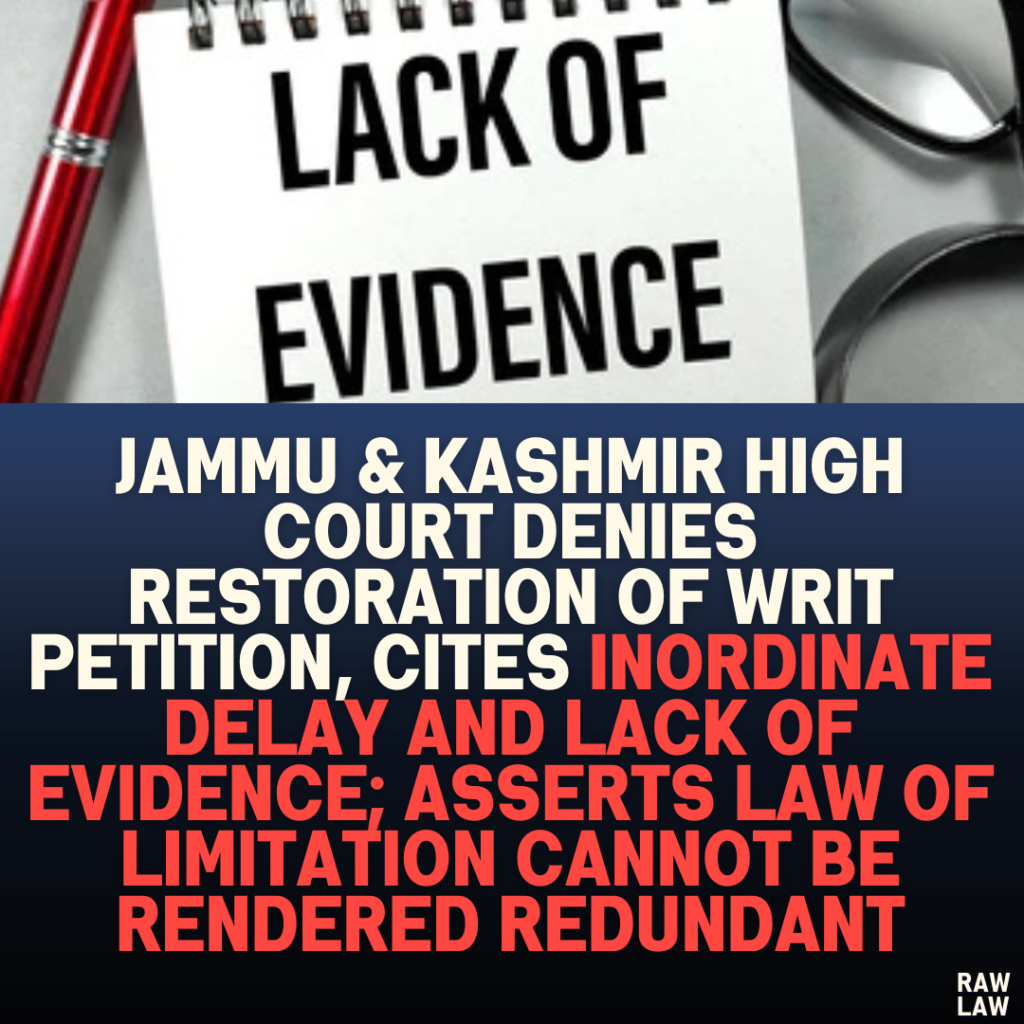Court’s Decision: The Jammu & Kashmir High Court dismissed the application seeking condonation of a 2727-day delay for restoring a writ petition that was previously dismissed for non-prosecution. The court concluded that the applicant failed to provide sufficient cause to justify such an extended delay and emphasized that a liberal approach towards condoning delays cannot undermine the Law of Limitation.
Facts: The applicant originally filed a writ petition in 2011 concerning an appointment to a Class-IV post. This petition was dismissed on June 6, 2011, for non-prosecution due to the applicant’s inability to contact his counsel because of alleged health issues. The applicant subsequently filed for restoration in 2019, citing prolonged illness as the reason for the delay.
Issues: The primary issue before the court was whether sufficient cause existed to condone a delay of 2727 days in filing an application for restoring the writ petition.
Petitioner’s Arguments: The applicant argued that his inability to maintain communication with his counsel due to illness justified the delay. He asserted his ongoing interest in prosecuting his case despite the lengthy delay.
Respondent’s Arguments: The respondents contended that the applicant failed to provide concrete evidence of his illness or specifics regarding the duration of his ailment. They argued that no documentation was submitted to substantiate the claims of illness or the timing of the applicant’s awareness of the case dismissal.
Analysis of the Law: The court highlighted that while a liberal approach is generally encouraged in condoning delays, such an approach should not be extended to a degree that renders the Law of Limitation ineffective. The court underscored the importance of maintaining the integrity of limitation statutes, as allowing unrestricted delays could lead to perpetual uncertainty in legal matters.
Precedent Analysis: The court referenced Union of India & Anr. v. Jahangir Byramji Jeejeebhoy (D) Through His LR, where the Supreme Court held that both private litigants and government entities must adhere to limitation laws. The Supreme Court in that case underscored that litigants cannot dictate their own timelines and that condoning excessive delays undermines justice and fair process.
Court’s Reasoning: The court observed that the applicant’s explanation lacked specific details and supporting documents, making it impossible to verify the claim of prolonged illness as a genuine cause for delay. Additionally, the court noted that excessive delays compromise the principles of justice and equity by enabling prolonged litigation without end.
Conclusion: The court dismissed the application, finding no valid justification for the applicant’s delay. The accompanying application for restoring the original writ petition was also dismissed.
Implications: This judgment reinforces the judiciary’s commitment to upholding limitation laws and discourages unwarranted delays in litigation. The decision sets a clear precedent that claims for condonation of significant delays must be backed by substantial and verifiable evidence.
